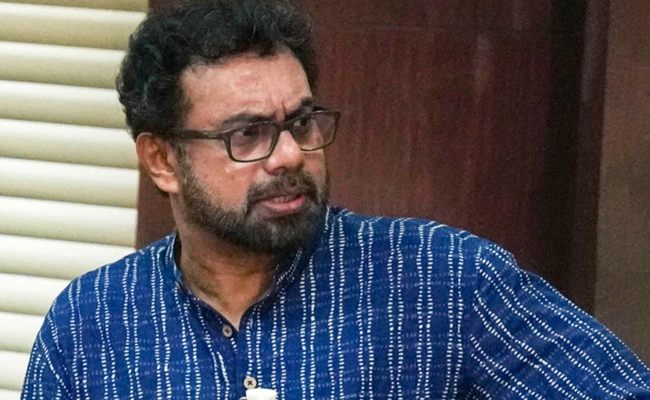Bengaluru: In an alleged incident reported from Bengaluru, a group of Sangh Parivar activists assaulted Muslim volunteers who were distributing food and essential supplies to poor in the wake of country-wide lockdown due to the spread of Corona Virus.
According to the volunteers who were assaulted, the attackers alleged that the Muslims were distributing poisoned, contaminated food supplies to further spread the Corona Virus, before assaulting with cricket bats.
One of the volunteers has reportedly sustained injuries during the incident and has been admitted to Ambedkar medical college in Shampur due to injuries.
The volunteers claimed that they were working for the NGO ‘Swaraj Abhiyan’
“23-year-old Syed Tabrez son of Zarin Taj, Bangalore district secretary of Swaraj Abhiyan and five others, Kiran, Junaid, Riyaz, Feroz and Amjad were attacked by RSS sympathizers for distributing essential supplies to families in the Dasarahalli slum in Bangalore today evening. The five were assaulted by more than 15 people with cricket bats. The mother of one of the victims who was at the location when the assault happened said that the accused threatened the five and said ‘Muslims are poisoning the rations, you people don't deliver food here, you Muslims have to leave the slum and relocate somewhere else'” a press statement from the organisation stated.
“On 04 April, the five who were distributing rations in the slum were threatened by the RSS sympathizers who told them to stop distributing essential products to families in the slum. Following the verbal threats, the five complianed to the Police Inspector in the Amrutahalli Police Station. They were given a verbal by assurance by the police that their complaints will be looked into. Today morning, the five informed the police that they will be distributing essential supplies in the slum” it further added.
Zarin Taj, speaking in a video after the incident has called on the police to carry thorough investigation into the matter and should take strict action against the accused.
An FIR has been registered into the matter against six unknown people at Amruthalli Police Station and investigations are underway.
Watch video here:
Let the Truth be known. If you read VB and like VB, please be a VB Supporter and Help us deliver the Truth to one and all.
Meerut (UP) (PTI): Prime Minister Narendra Modi on Sunday flagged off the Meerut Metro and Namo Bharat train from the Shatabdi Nagar station here, giving a fillip to high-speed intercity travel and swift intra-city movement.
From there, the prime minister also undertook a metro ride till Meerut South station.
He is also going to inaugurate and dedicate to the nation various development projects worth around Rs 12,930 crore in Meerut.
Modi will also address the gathering on the occasion, a statement issued by the Prime Minister's Office.
The prime minister dedicated to the nation the entire 82 Km Delhi Meerut Namo Bharat corridor and inaugurated the remaining sections of India's first Namo Bharat Regional Rapid Transit System (RRTS), which include the 5 km section between Sarai Kale Khan and New Ashok Nagar in Delhi and the 21 km section between Meerut South and Modipuram in Uttar Pradesh.
With a design speed of 180 km per hour, Namo Bharat is India's first regional rapid transit system. It will connect major urban centres such as Sahibabad, Ghaziabad, Modinagar and Meerut with Delhi at a faster pace.
Sarai Kale Khan station, the originating station of the corridor, is one of the four Namo Bharat stations commissioned with this inauguration.
It is strategically located as a major multi-modal hub, seamlessly connecting Hazrat Nizamuddin railway station, Delhi Metro's pink line, Veer Haqeeqat Rai ISBT, and the ring road.
The other three Namo Bharat stations --- Shatabdi Nagar, Begumpul and Modipuram --- being commissioned are in Meerut.
The prime minister also inaugurated the Meerut Metro services between Meerut South and Modipuram, operating on the same infrastructure as Namo Bharat, in a first-of-its-kind initiative in the country.
The Meerut Metro will be India's fastest metro system with a maximum operational speed of around 120 kmph. The metro will cover the entire stretch in just 30 minutes, with all scheduled stoppages en route.
This seamless integration of Namo Bharat and Meerut Metro on the same infrastructure will ensure high-speed intercity travel and swift intra-city movement, setting a benchmark for integrated urban and regional transit in India.
It will decongest road traffic and consequently lead to a significant reduction in vehicular carbon dioxide emissions.
These projects will provide further impetus to the prime minister's vision of transforming urban mobility and ensuring seamless, efficient, modern and sustainable public transport systems that improve ease of living for citizens, the statement said.





